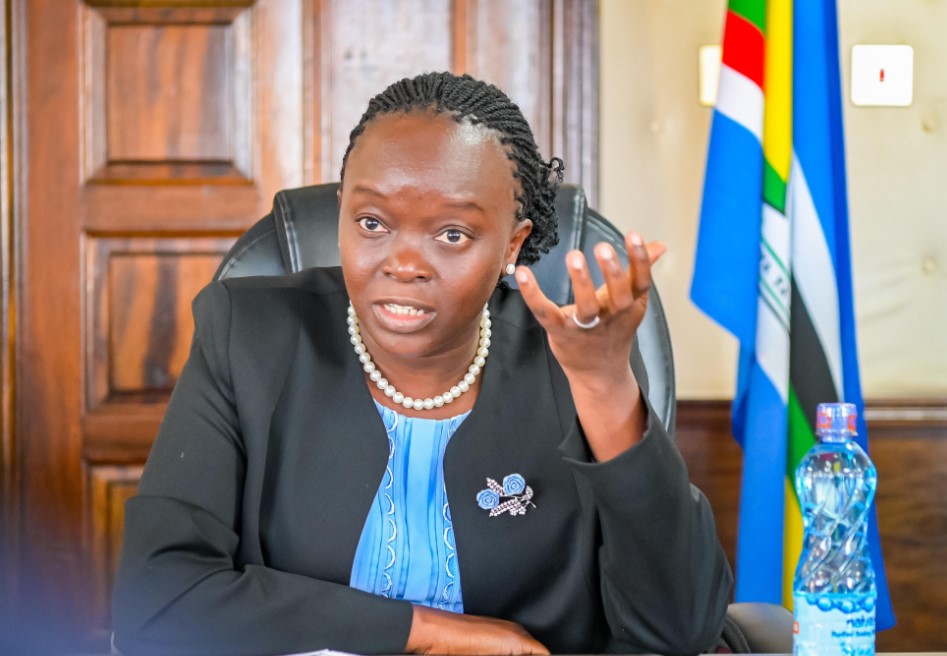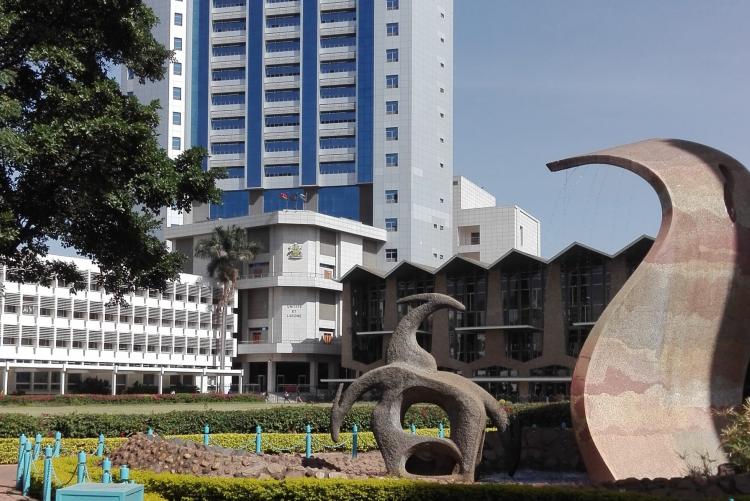MPs summon Health CS over new Sh104.8bn SHIF ICT system

The MPs have questioned why the Ministry of Health opted for a new system, bypassing the existing National Health Insurance Fund (NHIF) infrastructure, which has been successfully serving millions of Kenyans.
The National Assembly's Health Committee has summoned Health Cabinet Secretary Deborah Barasa to explain the procurement of a new Sh104.8 billion ICT system for the Social Health Insurance Fund (SHIF).
The system, set to be rolled out on October 1, 2024, has drawn sharp criticism from lawmakers over concerns about corruption, single sourcing, and the exclusion of key government bodies during its approval.
More To Read
- TSC sued over teachers’ migration from MINET insurance to SHA
- Ruto announces increase in cancer treatment cover to Sh800,000 under SHA from December 1, 2025
- Government to review SHA packages amid calls for better cancer care
- Senate probes detention of new mothers in hospitals over unpaid bills
- Ruto targets faster healthcare access with KEMSA direct medicine deliveries to hospitals
- Parliament flags exclusion of teen mothers, prisoners from SHA coverage
CS Barasa is expected to appear before the committee on Monday, September 30, 2024, to clarify the rationale behind the project.
The MPs have questioned why the Ministry of Health opted for a new system, bypassing the existing National Health Insurance Fund (NHIF) infrastructure, which has been successfully serving millions of Kenyans.
Committee chairman, Endebess MP Robert Pukose on Wednesday raised concerns that the procurement process for the SHIF system lacked transparency and could lead to financial misuse.
"The process appears flawed. From what we've seen, this looks like fraud in the making. That's why we need full transparency before we make any decisions," Pukose stated.
The MPs also questioned the necessity of replacing the NHIF system, which is still functional, suggesting that the government should have upgraded the current system rather than undertaking an expensive overhaul.
Concerns have also been raised over the system's poor performance during testing in Marsabit and Tharaka Nithi counties.
"They've tested the new system in Marsabit and Tharaka Nithi counties, and it failed. It is unclear why the Ministry is so insistent on replacing a system that has been working," Pukose added
Lack of proper approvals
Kitutu Chache South MP Anthony Kibagendi further highlighted the failure to follow procurement regulations, noting that the Attorney General and other key oversight bodies were not consulted before the system was procured.
"The Health Cabinet Secretary did not inform the Cabinet or the National Treasury about this project, as required by the Public Procurement and Asset Disposal Act," Kibagendi said.
The MP emphasised that the tendering process was irregular, with no public participation or proper documentation presented to justify the procurement.
MP Kibagendi also revealed that the consortium tasked with implementing the project includes companies with little to no experience in managing large-scale health systems.
While Safaricom is listed as the lead contractor, much of the work is being handled by a smaller firm, Apiero Limited, which MPs flagged for its lack of relevant expertise.
"While Safaricom is the lead bidder, the majority of the work is being carried out by Apiero Limited, a partner in the tripartite consortium. The ministry's decision to award the tender based on Apiero's experience is questionable, as the company has no direct association with similar systems," Kibagendi added.
NHIF
Lawmakers also questioned the exorbitant cost of the system. Kisumu Central MP Joshua Oron expressed scepticism over the Sh104.8 billion price tag, pointing out that even advanced military systems don't reach such a high cost.
"One reason given for choosing Safaricom was for credit and financing purposes. However, no supporting documentation has been provided. Why didn't the ministry negotiate with Safaricom to lower the quoted Sh104 billion?" Kibagendi questioned.
Seme MP James Nyikal raised further concerns, suggesting that funds meant for social health insurance might be redirected to fund the new system.
He called for clarity on the financing arrangements and questioned the need for a new system when the NHIF platform is still operational.
Several MPs have called for the halting of the project until all due processes are followed.
Kisumu Central MP Joshua Oron argued that the deal appeared "reeks of corruption" and urged the committee to take swift action to prevent further developments.
"As a committee, we must act to prevent this from proceeding. We support the launch of the Social Health Authority, but it should continue using the existing system until proper procedures are followed," he stated.
The SHIF system was procured under the Specially Permitted Procurement Procedure, a method meant to cater to projects of national security or public interest.
However, MPs have cast doubt on whether this project falls under such a category.
The contract is set to be implemented over a 12-year period, and the National Assembly is pushing for a review to ensure that taxpayers get value for money and that the procurement process adheres to the law.
Top Stories Today













































